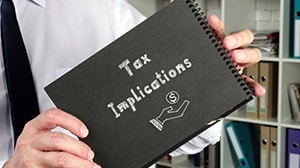Introduction:
In today’s digital age, influencers play a significant role in brand promotion and online marketing. As influencers expand their reach globally, tax authorities worldwide are scrutinizing their activities to determine if they have a “permanent establishment” (PE) in their jurisdiction for tax purposes. This article aims to shed light on the concept of permanent establishment and its implications for influencers in terms of tax regulations.
Defining Permanent Establishment (PE):
A permanent establishment refers to a fixed place of business through which an enterprise carries out its business activities, either wholly or partially. The concept of PE is essential for determining the tax liability of businesses, including influencers, in a particular jurisdiction. In the context of influencers, a PE can arise when they have a physical presence, such as an office or a place where they regularly conduct their business, within a foreign jurisdiction.
PE Criteria for Influencers:
The criteria for establishing a PE can vary from country to country, as tax laws differ worldwide. However, certain common factors are considered in determining if an influencer has a PE:
- Physical Presence: A fixed location, such as an office or studio, where the influencer carries out their business activities.
- Duration of Stay: If the influencer spends a significant amount of time in a foreign jurisdiction, it may trigger the existence of a PE.
- Agency or Dependent Agent: If an influencer has a local representative or agent who habitually concludes contracts on their behalf, it may lead to a PE.
Tax Implications of PE:
When an influencer is deemed to have a PE in a foreign jurisdiction, they become subject to taxation in that country. This means they may need to comply with local tax laws, report income earned within the jurisdiction, and potentially pay corporate or personal income taxes.
Double Taxation Avoidance Agreements (DTAA):
To prevent double taxation and provide clarity on tax obligations, many countries have entered into Double Taxation Avoidance Agreements (DTAA) with each other. DTAA determines the taxing rights between countries and may provide relief for influencers by specifying the conditions under which a PE is considered to exist.
Compliance and Reporting Obligations:
Influencers with a PE must ensure compliance with the tax regulations of the foreign jurisdiction. This includes registering for tax purposes, maintaining proper books of accounts, filing tax returns, and fulfilling any other reporting obligations imposed by the local tax authorities.
Seek Professional Advice:
Due to the complexities involved in determining PE and complying with foreign tax regulations, influencers should seek professional advice from tax experts who specialize in international tax matters. These professionals can assist influencers in understanding their tax obligations, ensuring compliance, and maximizing tax efficiency while minimizing the risk of non-compliance.
Conclusion:
As influencers expand their global reach, understanding the concept of permanent establishment and its tax implications is crucial. Influencers must be aware of the criteria that determine PE in various jurisdictions, comply with local tax regulations, and seek professional advice to navigate the complexities of international tax laws. By staying informed and proactively managing their tax obligations, influencers can maintain compliance, build sustainable businesses, and contribute to the growth of the influencer industry in an increasingly interconnected world.
Team AnBac Advisors

